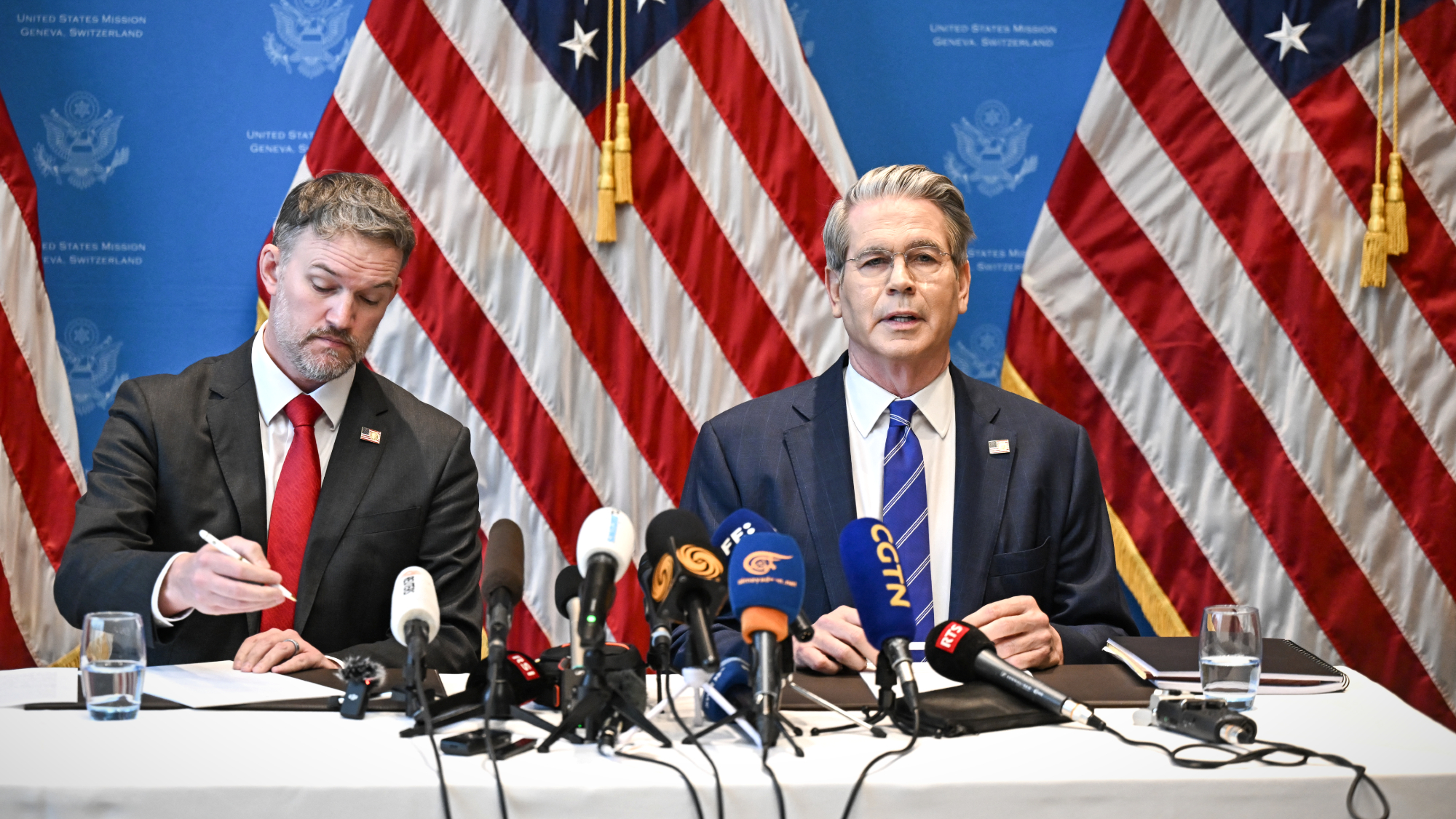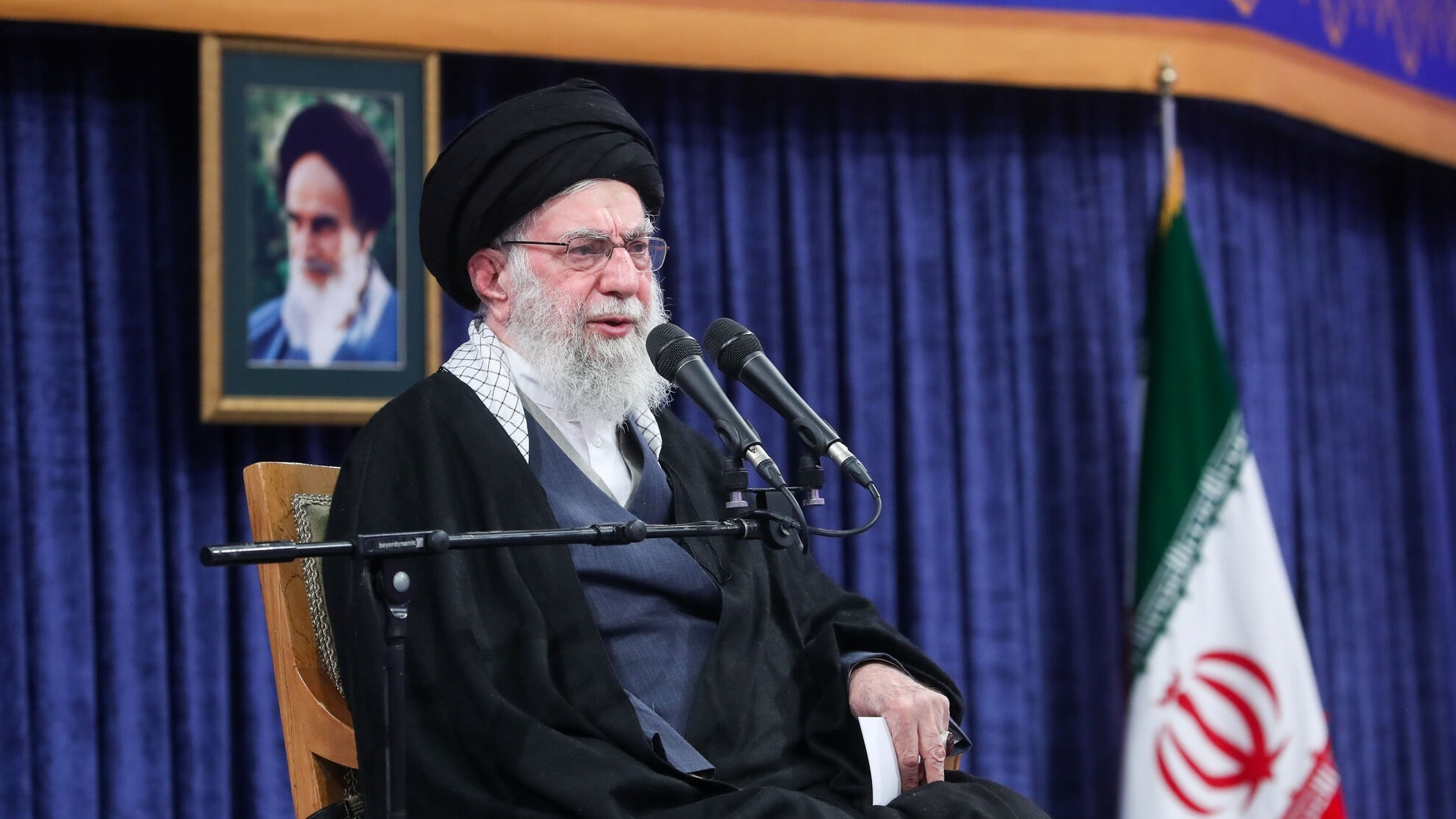US, China agree to lower tariffs for 90 days
US tariffs will fall to 30% from 145%, while China will cut its tax on US imports to 10% from 125%


A free daily email with the biggest news stories of the day – and the best features from TheWeek.com
You are now subscribed
Your newsletter sign-up was successful
What happened
U.S. and Chinese negotiators Monday morning announced a 90-day lowering of tariffs while they work on a broader deal to end President Donald Trump's trade war with the world's No. 2 economy. Under the agreement, U.S. tariffs will fall to 30% from 145%, while China will cut its tax on U.S. imports to 10% from 125%. The new rates were slated to begin Wednesday.
Who said what
"We concluded that we have a shared interest," said Treasury Secretary Scott Bessent, who led the U.S. delegation in Geneva alongside U.S. Trade Representative Jamieson Greer. "The consensus from both delegations is that neither side wanted a decoupling." Asian markets and U.S. futures rose sharply on the news.
"Such a sharp U-turn by the U.S. on tariffs on a Monday morning is quite the surprise," said Arne Petimezas at AFS Group in Amsterdam, per Reuters. Trump "has toned down his tariffs faster than anyone thought he could." Don't "take everything we hear at the moment at face value," said Jan von Gerich at Nordea in Helsinki. "If you want to end up with low tariffs then why do it like this? It's still bouncy."
The Week
Escape your echo chamber. Get the facts behind the news, plus analysis from multiple perspectives.

Sign up for The Week's Free Newsletters
From our morning news briefing to a weekly Good News Newsletter, get the best of The Week delivered directly to your inbox.
From our morning news briefing to a weekly Good News Newsletter, get the best of The Week delivered directly to your inbox.
What next?
The 90-day reprieve is a "more civilized way to divorce," Alicia García Herrero, the chief economist for Asia Pacific at the investment bank Natixis, said to The Washington Post. "The deal is not a solution," but "basically an attempt, hopefully successful, of avoiding a global recession."
A free daily email with the biggest news stories of the day – and the best features from TheWeek.com
Peter has worked as a news and culture writer and editor at The Week since the site's launch in 2008. He covers politics, world affairs, religion and cultural currents. His journalism career began as a copy editor at a financial newswire and has included editorial positions at The New York Times Magazine, Facts on File, and Oregon State University.
-
 6 of the world’s most accessible destinations
6 of the world’s most accessible destinationsThe Week Recommends Experience all of Berlin, Singapore and Sydney
-
 How the FCC’s ‘equal time’ rule works
How the FCC’s ‘equal time’ rule worksIn the Spotlight The law is at the heart of the Colbert-CBS conflict
-
 What is the endgame in the DHS shutdown?
What is the endgame in the DHS shutdown?Today’s Big Question Democrats want to rein in ICE’s immigration crackdown
-
 Rubio boosts Orbán ahead of Hungary election
Rubio boosts Orbán ahead of Hungary electionSpeed Read Far-right nationalist Prime Minister Viktor Orbán is facing a tough re-election fight after many years in power
-
 Key Bangladesh election returns old guard to power
Key Bangladesh election returns old guard to powerSpeed Read The Bangladesh Nationalist Party claimed a decisive victory
-
 The fall of the generals: China’s military purge
The fall of the generals: China’s military purgeIn the Spotlight Xi Jinping’s extraordinary removal of senior general proves that no-one is safe from anti-corruption drive that has investigated millions
-
 EU and India clinch trade pact amid US tariff war
EU and India clinch trade pact amid US tariff warSpeed Read The agreement will slash tariffs on most goods over the next decade
-
 China’s Xi targets top general in growing purge
China’s Xi targets top general in growing purgeSpeed Read Zhang Youxia is being investigated over ‘grave violations’ of the law
-
 The app that checks if you are dead
The app that checks if you are deadIn The Spotlight Viral app cashing in on number of people living alone in China
-
 Maduro pleads not guilty in first US court hearing
Maduro pleads not guilty in first US court hearingSpeed Read Deposed Venezuelan leader Nicolás Maduro and his wife Cilia Flores pleaded not guilty to cocaine trafficking and narco-terrorism conspiracy
-
 Iran’s government rocked by protests
Iran’s government rocked by protestsSpeed Read The death toll from protests sparked by the collapse of Iran’s currency has reached at least 19
